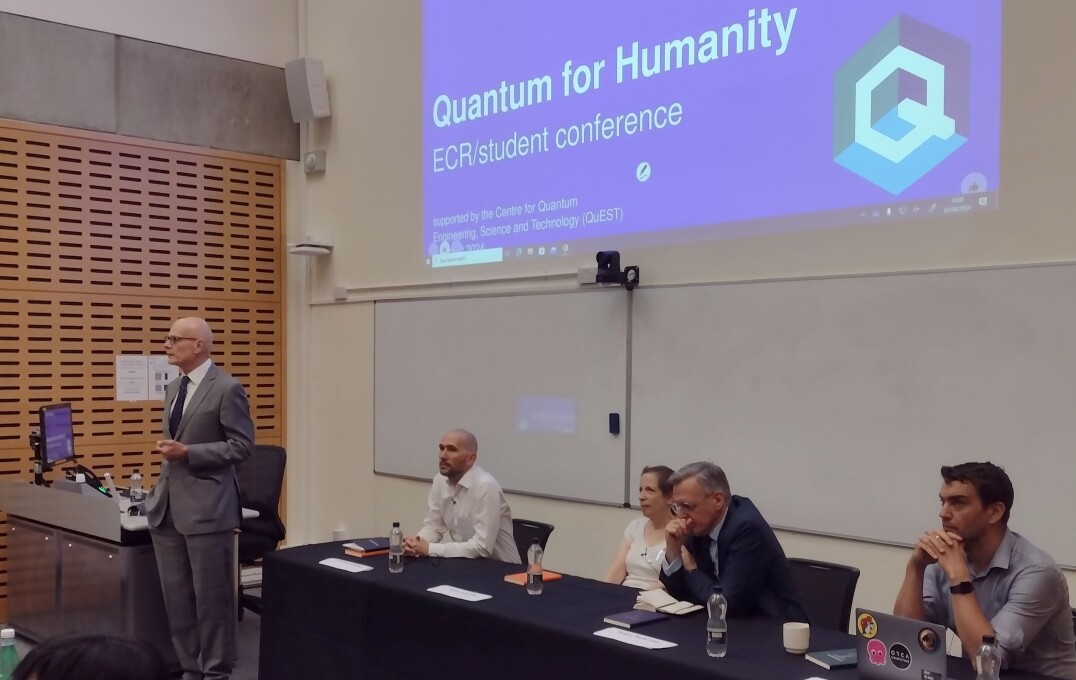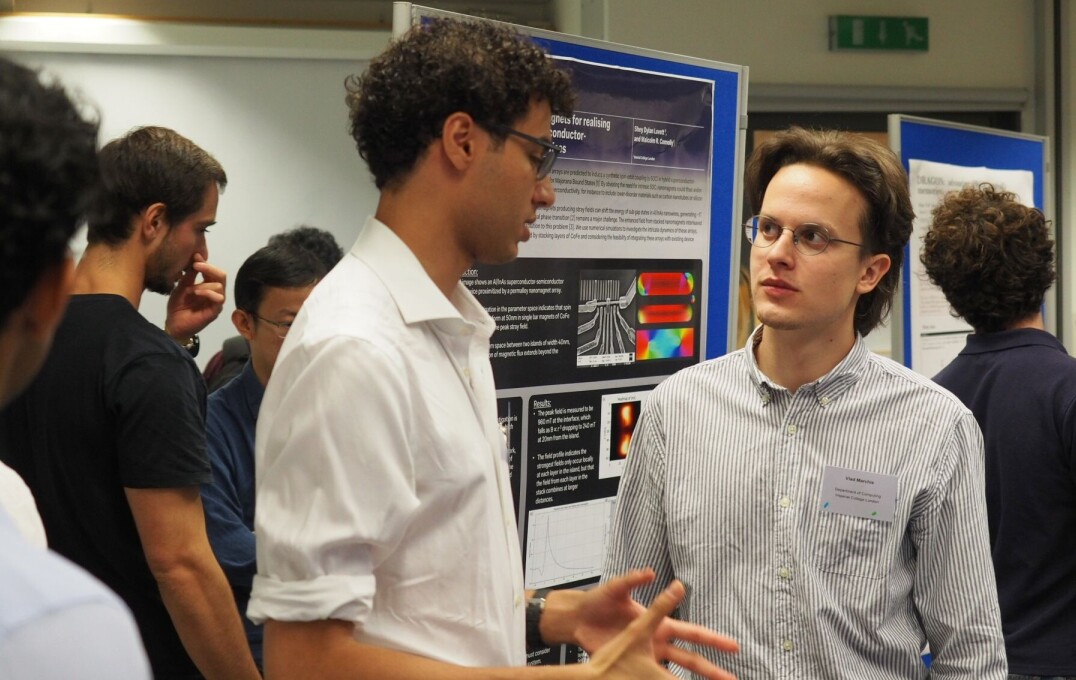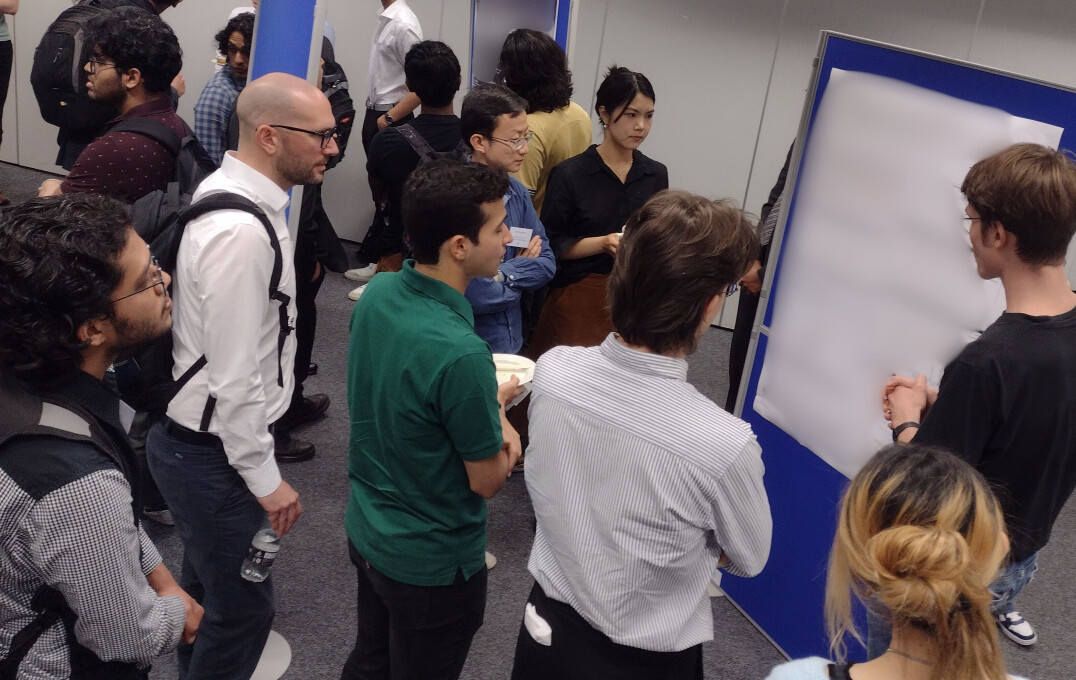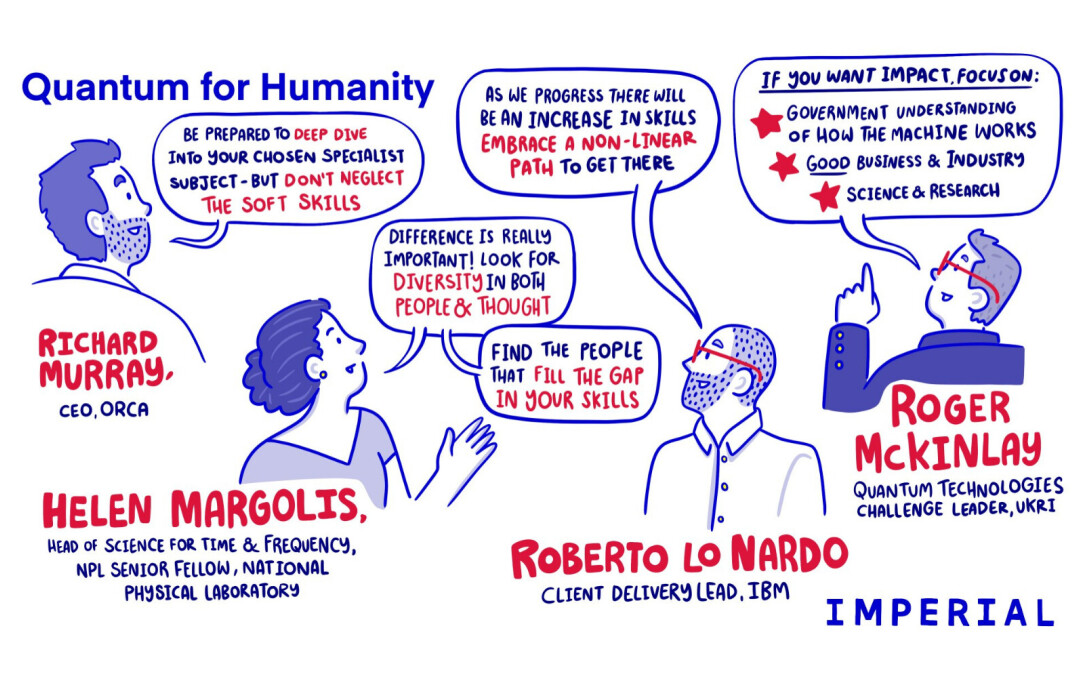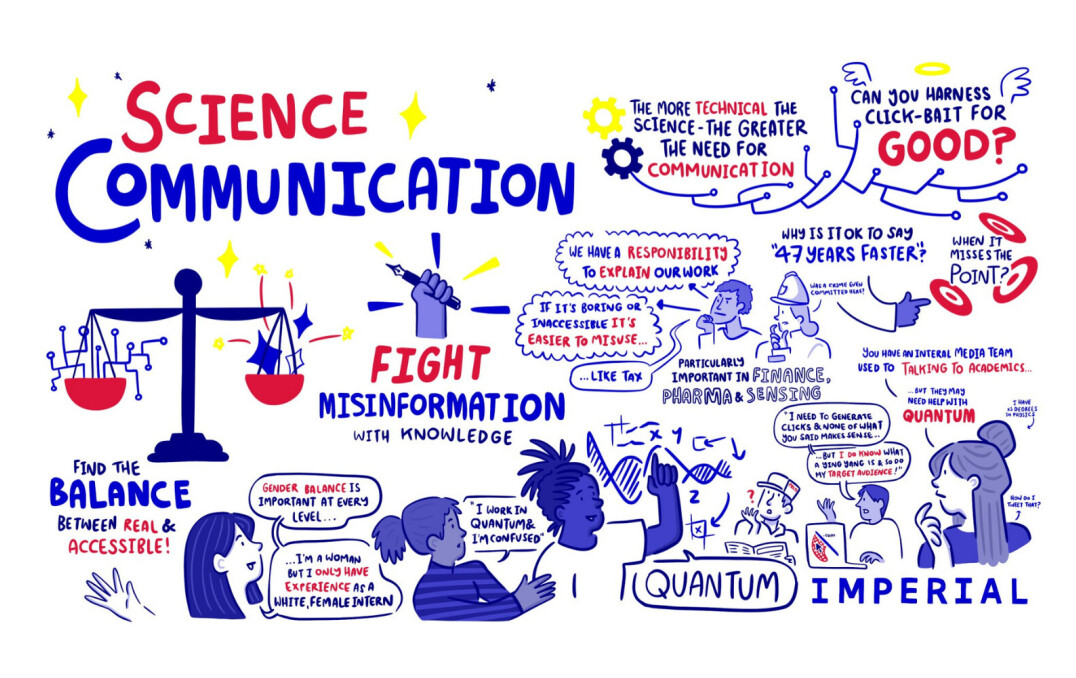Student-led conference explores inclusive quantum future for humanity
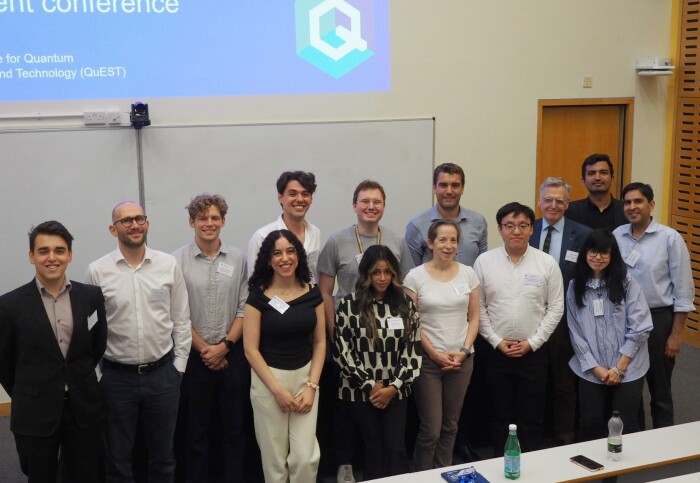
The Centre for Quantum Engineering, Science and Technology (QuEST) at Imperial College London hosted a new quantum conference on Wednesday 7 August.
The conference, titled 'Quantum for Humanity', was organised by early-career researchers, PhD students and Masters students from multiple departments at Imperial, with support from the student-run Quantum Society.
The event strengthened Imperial’s interdisciplinary quantum community of early career researchers and students while exploring the use of quantum technology for the benefit of humanity.
Quantum for Humanity
Quantum technologies offer promise to benefit humanity, unlocking computing power to solve global challenges and realising ultra-precise quantum sensors that can support medical diagnostics or secure data transfer over long distances. At Imperial, the QuEST community are actively focusing on the safe and responsible use of quantum technologies and making this central to their development.
After an introduction by Professor Ian Walmsley, the conference featured a series of lightning talks from quantum experts. Speakers included Roberto Lo Nardo, Client Delivery Lead at IBM; Helen Margolis, Head of Science for Time & Frequency and NPL Senior Fellow at the National Physical Laboratory; Roger McKinlay, Quantum Technologies Challenge Leader at the UKRI and Richard Murray, CEO at ORCA Computing.
This was followed by a panel discussion, which explored a broad range of topics, from how to spin out a quantum company to how to build the world’s most accurate atomic clock, how to impress on the quantum job market, and how to sell your first full-stack quantum computer. Panellists emphasised the need for clear and effective scientific communication to engage wider society in the quantum revolution and the use of quantum technologies in the future.
After a packed poster session that offered students the opportunity to showcase their quantum research, the group split into breakout sessions to discuss the global quantum ecosystem, quantum engagement and outreach, quantum careers, and strategies to advance quantum technology for the benefit of humanity.
Professor Peter Haynes, QuEST Director said, "The successful delivery of new quantum technologies will rely critically upon the development of a “quantum smart” workforce, so it is wonderful to see this event encouraging researchers from across our community to consider the role that they may play in the future."
Louis Chen, President of Imperial QTSoc (Quantum Society) said, "I'm delighted to see so many early-stage researchers and students from various fields pushing the boundaries on the topic of quantum for humanity. I would also like to thank QuEST for their longstanding support and for providing a platform for collaboration within the quantum community at Imperial."
The QuEST early career organising committee would like to thank QuEST Centre Manager Dr Isabella von Holstein for her immense help in coordinating the day.
Read our Q&A: How will quantum science transform technology?
Learn more about the Centre for Quantum Engineering, Science and Technology at Imperial College London.
Article text (excluding photos or graphics) © Imperial College London.
Photos and graphics subject to third party copyright used with permission or © Imperial College London.
Reporter
Kayleigh Brewer
Department of Materials
